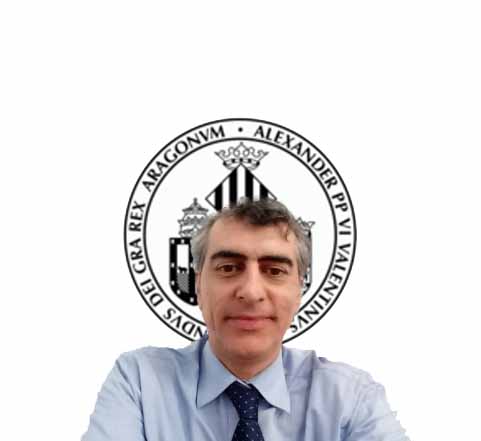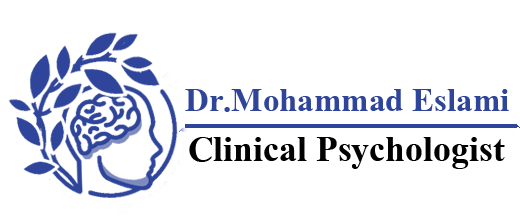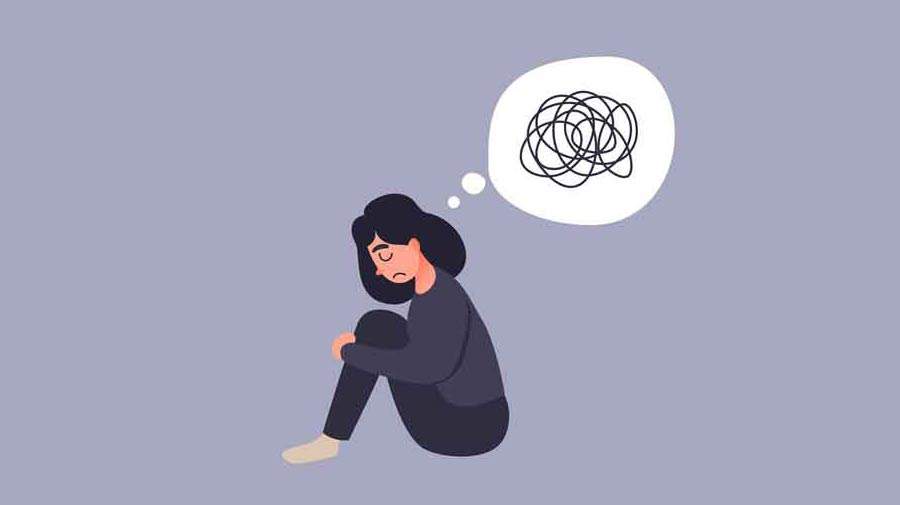In this article you will read:
What is depression?
The main symptoms of depression
The most important causes of depression
Types of depression
What is persistent depressive disorder?
- What is bipolar disorder?
- depression treatment
- Non-pharmacological treatment of depression
What is depression?
Depression is a mental disorder that is associated with feelings of dissatisfaction, hopelessness, lack of interest in work and lack of happiness. People may also experience physical symptoms such as fatigue, anorexia, bulimia, sleepiness, insomnia, and body pain. These symptoms last for a long time and can affect a person’s life.
The main symptoms of depression
The main symptoms of depression include the following:
- Feeling dissatisfied
- Lack of joy and despair
- Decreased energy and fatigue
- Decreased interest in work or activities you used to enjoy
- Sorrow
- Decreased libido
- Difficulty concentrating and making decisions
- Negative and suicidal thoughts
- Sleep and wakefulness problems (oversleeping or staying awake)
- Not recognizing emotions correctly
The best choice of treatment is consultation with a psychologist or psychiatrist.
The most important causes of depression
Depression is a complex mental illness that can return for many reasons. The most important causes of depression are:
- Genetic factors: Some people suffer from depression due to family history.
- Physical and medical factors: Diseases such as Alzheimer’s, cancer, heart diseases, obesity, thyroid diseases, anxiety and stress, medications such as pain medications, and other physical diseases may cause depression.
- Psychological factors: distress, anxiety, work pressure, poor financial situation, other problems in life (level of education, unsuitable job, uncertain family relationships or conflict in bad relationship with spouse and relatives, bitter experience of divorce and bitter life events such as classification accidents and drug addiction) may cause depression.
- Some individual conditions, such as hormonal imbalance in the body, lack of sunlight, alcohol or drug use, as well as not having a proper social network and supporting people, can affect the occurrence of depression.
In any case, it is better to consult your doctor or psychiatrist for a more accurate diagnosis and safe treatment of depression.
Types of depression
Depression is generally divided into two major categories: major depression and mood depression.
1- Basic depression: This type of depression related to basic clinical conditions and neurochemical disorders has brain-nerve functions. This type of depression is more intense and continues for a longer period of time than other types of depression. Preventing serious complications and aggravation of this type of depression requires clinical treatment with drugs, psychotherapy, or a combination of both treatments and is recommended.
2- Mood depression: this type of depression is less severe and is usually associated with unstable living conditions, work environment, family problems, sexual problems or ups and downs in life. Even small changes in life circumstances can bring relief from stress or depression.
In addition, there are other categories of depression that include seasonal depression, persistent depression, bipolar depression, etc. In any case, consultation with a psychologist or psychiatrist is very useful and necessary to correctly diagnose the type of depression and provide appropriate treatment.

Dr. Mohammad Eslami, clinical psychologist
PhD in psychology from a prestigious European university
Psychosomatic diseases fellowship
Licensed by Iran’s psychology system
Member of the Iranian Psychological Association
What is persistent depressive disorder?
Persistent depressive disorder or dysthymia is a type of depression that is more severe than mood depression due to its long and chronic nature. This disease can be stable for one or more years and affect people negatively. Its symptoms such as depression, fatigue, lack of motivation, decreased happiness, hopelessness, and feelings of worthlessness continue for a year or more.
Dysthymia is usually rarely completely painful for the individual, but due to its escapist nature, which involves a reduction in feelings of happiness and joy, it can alienate the individual from herself and others and cause problems in work, family, and social life.
Dysthymia treatment includes drug and psychological treatments, including psychological counseling, psychotherapy, and drug treatment, which is a combination of drugs, such as antidepressants and antioxidants, and psychological methods, such as cognitive-behavioral methods, which help to recognize the errors of a person's thoughts and change his way of thinking. , it is focused. The most important point of dysthymia treatment is to positively change a person's outlook and help him control factors such as worthlessness, despair and fatigue and somehow give happier and more positive intentions to life.
What is bipolar disorder?
Bipolar disorder or bipolar illness or manic-depressive illness is a type of mental disorder that is associated with extreme changes in a person's mood and energy level. Generally, this disease includes periods of high energy level (called mania and hypomania) or periods of low energy level (called depression). During the period of mania, a person may feel happy, increase energy level, decrease control over emotions and feelings, restlessness, busy mind, difficulty sleeping and aggressive and out of control behaviors. People who are suffering from bipolar disorder feel dissatisfaction, various instinctive symptoms and pain, decreased energy level, feeling worthless, feeling empty and sometimes have suicidal thoughts during their depression period.
Although the exact cause of this disorder is not known, the symptoms of bipolar disease can develop chronically for some time or for years, and as a result, problems such as sexual problems, suicide, and disease progress in the clinic are more severe than other diseases such as mood depression. The treatment of this disease includes the combination of drug treatment and psychotherapy, which helps to control the symptoms and prevent the progression of the disease. It is better to never diagnose this disease on your own and always seek help from a reputable medical expert in this field.
depression treatment
The treatment of depression depends on its severity and duration. In general, the treatment of depression includes drug treatment, psychology and psychotherapy. Medications such as antidepressants or antioxidants (such as lithium) may be effective for a person with depression and help reduce the level of mild to moderate pain and other depressive symptoms such as sleepiness, anxiety, anger, restlessness, tension, and worry. .
Psychology and psychotherapy, along with counseling, therapy sessions, or other treatments, can help a person with depression. These therapies help a person manage common neurological complications and help a person develop psychological control, self-awareness, self-improvement, and question-and-answer skills. And if he requests drug treatment, it is up to him to decide which of them is more suitable for him. Referral to specialists is a promising way for those suffering from depression.
Non-pharmacological treatment of depression
Depression can be treated using non-pharmacological methods. These methods are used as a supplement to drug treatment or as an alternative to it.
- Physical methods: Exercise and regular physical activity can improve symptoms of depression. These activities cause the release of happiness hormones in a person's brain. Physical therapy such as massage and yoga can also be helpful.
- Cognitive-behavioral methods: This type of treatment includes recognizing the errors of individual thoughts and changing the person's way of thinking.
- Psychotherapy: This treatment method is used for people whose existing drug treatment is not effective. In this method, an attempt is made to help a person to increase his tolerance to the trouble and problems that have happened to him.
- Meditation: Meditation and mindfulness practice can also improve depression symptoms. This method is very effective as one of the methods of meditation focused on meditation (MBCT) for treating people with chronic depression.
- Art methods: such as painting, music, writing poetry and dance therapy can be used as art methods to treat depression.
- Light therapy: This method is used to treat depression, sleep disorders, chronic pain and other psychological disorders. The reflection of the light of an LED light on the person will transport his eyes and brain to a relaxing space and help him to have a better understanding, including the space in which he was advised.
Although these methods can be helpful, none of them can cure depression alone and must be combined with pharmacological or psychological treatment.


